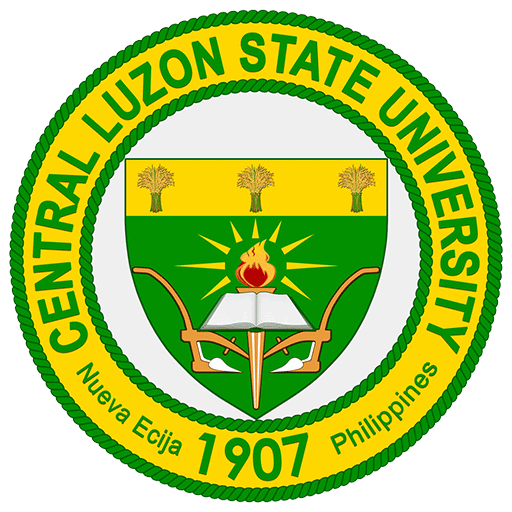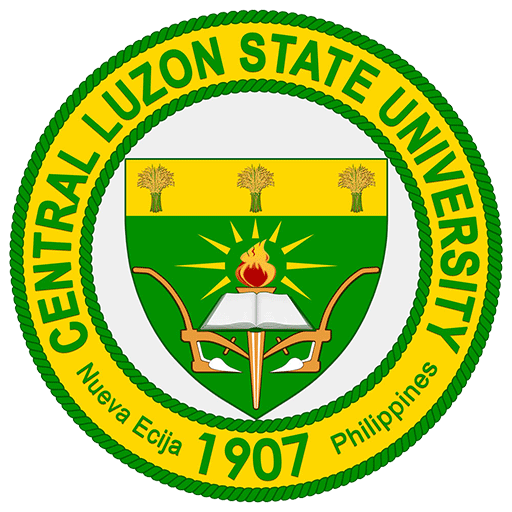Dr. Khristina J. Cruz, Associate Professor, Department of Biological Sciences, College of Science

The practice and traditional use of medicinal plant species to manage or cure specific maladies is one of the oldest forms of indigenous knowledge. Ethnic communities in the Philippines have such rich cultural traditions on the use of these diverse medicinal plant species. This traditional knowledge on our medicinal plants presents an excellent opportunity for a systematic inquiry for a better scientific understanding on the utilization of ethnobotanicals. At present this is mostly unexplored, considering the huge potential of ethnobotanicals as rich source of natural products that are antimicrobial and antipathogenic agents. Dr. Khristina Cruz, an Associate Professor of the Department of Biological Sciences, College of Science, is one such expert on Philippine ethnobotanicals particularly on the evaluation of their biomedical potential, including anti quorum sensing, anticancer and anti-diabetes activities. Recently she published a paper entitled: Candida albicans Biofilm Inhibition by Ethnobotanicals and Ethnobotanically-Synthesized Gold Nanoparticles in Frontiers in Microbiology. 12, 1175 (DOI:10.3389/fmicb.2021.665113), where she serves as the lead author. These results cover significant ground and Dr Cruz shared that her research has given a general overview of the antipathogenic and potent anticancer activities. Most of the results were confirmed through expression analyses of QS-linked genes. To date, she has 19 publications specific to this research theme on biomedical potentials of ethnobotanicals and has kindly shared the links to these publications.
The practice and traditional use of medicinal plant species to manage or cure specific maladies is one of the oldest forms of indigenous knowledge. Ethnic communities in the Philippines have such rich cultural traditions on the use of these diverse medicinal plant species. This traditional knowledge on our medicinal plants presents an excellent opportunity for a systematic inquiry for a better scientific understanding on the utilization of ethnobotanicals. At present this is mostly unexplored, considering the huge potential of ethnobotanicals as rich source of natural products that are antimicrobial and antipathogenic agents. Dr. Khristina Cruz, an Associate Professor of the Department of Biological Sciences, College of Science, is one such expert on Philippine ethnobotanicals particularly on the evaluation of their biomedical potential, including anti quorum sensing, anticancer and anti-diabetes activities. Recently she published a paper entitled: Candida albicans Biofilm Inhibition by Ethnobotanicals and Ethnobotanically-Synthesized Gold Nanoparticles in Frontiers in Microbiology. 12, 1175 (DOI:10.3389/fmicb.2021.665113), where she serves as the lead author. These results cover significant ground and Dr Cruz shared that her research has given a general overview of the antipathogenic and potent anticancer activities. Most of the results were confirmed through expression analyses of QS-linked genes. To date, she has 19 publications specific to this research theme on biomedical potentials of ethnobotanicals and has kindly shared the links to these publications.
For this year’s Annual Publication Incentive Award, her team’s paper entitled Quorum sensing inhibition activities of Philippine ethnobotanicals against virulence factors in Staphylococcus aureus, published in the International Journal of Agricultural Technology (2021. Vol 17 (4): 1305-1316) with Ms. Karmina N. Barrogo (main author) and Wilson Jacinto (co-author) is one of the contenders. The team studied the country’s diverse medicinal plants, its therapeutic value and its potential as source of new chemical compounds for drug discovery and tested the extracts and conducted assays on Staphylococcus aureus. Under the present scenario on public health, these will have important implications to the issue of antimicrobial resistance including antibiotic resistance. Antibiotic resistance is considered by the World Health Organization as a looming public health crisis, based on WHO’s 2014 comprehensive report and data from 114 countries, showing the prevalence of antibiotic resistance as observed in different age groups and sectors across the globe. Hence, the potential of the research findings of Dr Cruz’ program on ethnobotanicals, especially as a source of natural products against QS, to develop drugs against bacterial pathogens without developing resistance.
PUBLICATIONS
Candida albicans Biofilm Inhibition by Ethnobotanicals and Ethnobotanically-Synthesized Gold Nanoparticles
Philippine Ethnobotanicals Downregulate lasR Expression Linked to Quorum Sensing-Mediated Biofilm Formation in Pseudomonas aeruginosa
lasR/rhlR Expression Linked to Quorum Sensing-Mediated Biofilm Formation in Pseudomonas aeruginosa Using Gold Nanoparticles Synthesized with Ethnobotanical Extracts
Quorum Sensing-Linked agrA Expression by Ethno-Synthesized Gold Nanoparticles in Tilapia Streptococcus agalactiae Biofilm Formation. BioNanoScience 10, 696–704 (2020)
Ethnobotanical biosynthesis of gold nanoparticles and its downregulation of Quorum Sensing‐linked AhyR gene in Aeromonas hydrophila
Quorum Sensing Inhibition Activities of Philippine Ethnobotanicals Against Virulence factors in Staphylococcus aureus
agrA Expression Linked to Quorum Sensing-Mediated Coagulase Formation Using Philippine Ilongot Ethnobotanicals against Staphylococcus aureus
Anticancer activity of ethnobotanicals of the Philippine Ilongot-Eǵongot community on human colon cancer cells (HCT-116)
Philippine ethnobotanicals show anti-proliferative and cytotoxic activities in human breast cancer cells (MCF-7)
Quorum Sensing-Inhibition Activities of Philippine Ethnobotanicals Against Virulence Factors in Pseudomonas aeruginosa
Philippine ethnobotanicals inhibit quorum sensing-mediated swarming motility in Pseudomonas aeruginosa
Quorum-Sensing Mediated α- Hemolysin Inhibition of Philippine Ethnobotanicals in Staphylococcus aureus
Dillenia philippinensis, An Ilongot Ethnobotanical of Aurora, Philippines Shows Antidiabetic Activity
Quorum Sensing Inhibition Bioactivities of Philippine Ethnobotanicals against Pseudomonas aeruginosa
Philippine Ethnobotanicals INHIBIT QUORUM SENSING-CONTROLLED BIOFILM FORMATION IN Pseudomonas aeruginosa
- OVPAA, IAO conduct executive session on internationalization
- Ten Pre-Service Teachers Join the SEA Teacher Program
- CLSU student, chosen for SSEAYP 2022
- CLSU-BSHM students win in the Philippine Culinary Cup, Executive Chef Networking
- Two BSIT Students advance in the ASEAN Data Science Explorers 2022 (ASEAN DSE) competition
In an effort to promote global opportunities and foster enduring international partnerships, the Council...
Aligned with SDGs 4 (Quality Education) and 17 (Partnership for the Goals), ten pre-service teachers...
Dan Paul Aaron Torres, a fourth-year BS Chemistry student at Central Luzon State University, has been...
Bachelor of Science in Hospitality Management students of the Central Luzon State University participated...
The ASEAN Data Science Explorers 2022 competition organized by the ASEAN Foundation and SAP Asia Pte...


